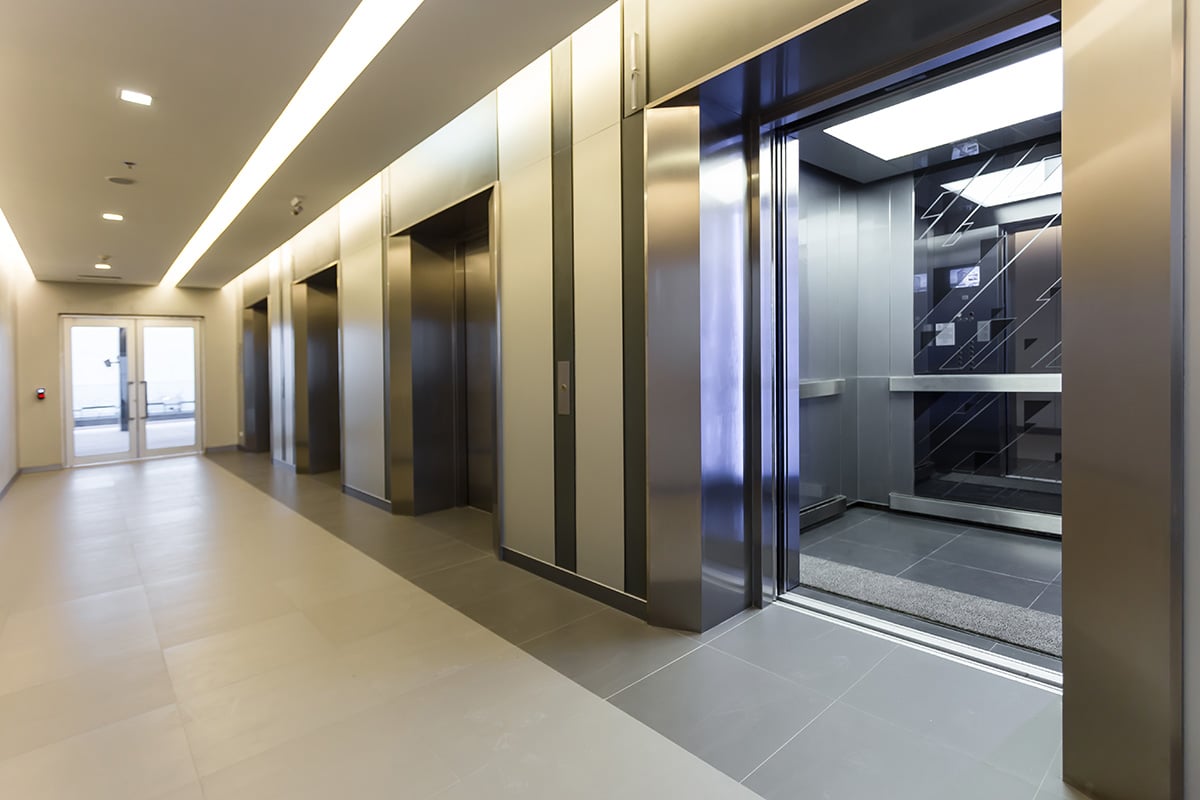Elevator Safety – A Priority for Passengers, Owners and Contractors
Elevators are a marvel of modern engineering, making our lives and movements easier and more efficient. At Bagby Elevator, we understand the critical importance of safety for both users and maintenance staff. Elevators, when properly used and maintained, are incredibly safe. This blog aims to highlight essential safety tips to ensure a secure elevator experience.
For Elevator Users: Safe Riding Practices
Wait Patiently: Always wait for the elevator to arrive and fully open before entering. Rushing can lead to accidents.
Mind the Step: Be aware of the small gap between the elevator and the floor. Watch your step to prevent tripping.
Hold Rails if Available: Use handrails if the elevator is equipped with them. This is especially helpful for persons with issues of balance when the car in motion.
Respect Load Capacity: Never overload the elevator. Adhering to the posted maximum capacity is crucial for safe operation.
Prevent Vandalism or Horseplay: Elevators are designed to transport persons safely in a comfortable and ideally, aesthetically pleasing fashion. However, the equipment is not designed to withstand nor function when subjected to rough horseplay or vandalism. Youthful exuberance displayed by jumping in the car can result in an entrapment. Wrestling by the elevator doors can sometimes allow folks to force their way into the hoistway with catastrophic consequences.
Building Maintenance Staff: Ensuring Operational Safety
Regular Inspections: Conduct thorough visual inspections regularly to identify and rectify any potential issues early. Communicate your concerns to your contractor.
Stay Updated with Safety Protocols: Always be up-to-date with the latest safety standards and protocols in elevator maintenance.
Use Proper Tools and Equipment: Ensure that all maintenance work is carried out with the appropriate tools and safety gear.
Check on Your Contractor: Ask them for their contractor and mechanic’s license. Request references. You are not being offensive.
Emergency Two-Way Communication: Make sure that the elevator is programmed to contact your maintenance contractor or a third party monitoring service. Moreover, make sure that line is operable.
Fire Service: Conduct a monthly check of firemen’s service Phases 1 and 2. Reach out to your elevator contractor if it is not operable to assess the issue.
Entrapments: As a beginning, untrained personnel should never enter the hoistway nor work upon nor alter, adjust elevator equipment. Therefore, utilizing door keys for the purpose of convenience or economy is strictly prohibited by custom, common sense and provided there is a relevant authority, the law. So, it is best to wait on your elevator contractor’s trained personnel to arrive. Absent that, fire departments are often trained in emergency evacuation from elevators.
That being said, there are times when emergency evacuation of passengers from a stalled elevator car presents. Therefore, the relevant code A17.1(2019) provides that competent persons may engage in the extraction of passengers from a stalled car. However, if at all possible, such extractions should only be performed by elevator personnel. Absent that, trained emergency personnel. Failing that, “authorized personnel” who have documented training by competent persons with specific procedures onsite for such extraction.
Given the rarity of a building owner, manager or operator having such procedures, documentation and trained personnel it follows that extraction by building personnel would generally be improper. Given that, it is Bagby Elevator’s policy to not assist or provide counsel regarding means or methods for building personnel to access the elevator hoistway absent having confirmed that the building can and does comply with the requirements of ASME A17.1 and A17.4. Suffice it to say that such compliance would require a substantial burden on the part of the building owner, operator or manager in terms of training, compliance and liability.
Importance of Regular Maintenance
Regular maintenance is not just a regulatory requirement; it’s a cornerstone of elevator safety. Routine checks can prevent the majority of elevator malfunctions and accidents. At Bagby Elevator, we emphasize preventative maintenance to ensure smooth and safe elevator operations.
WE HOPE YOU FIND THE ABOVE HELPFUL.

